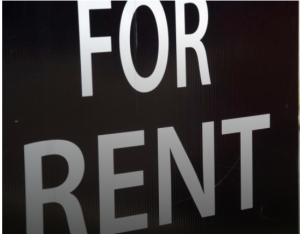Tenants Queensland is utterly disappointed with the report from the parliamentary committee on tenancy law changes, released on 16 August. The parliamentary committee has made the following recommendations about the government’s bill:
Recommendation 1 – The committee recommends the Housing Legislation Amendment Bill 2021 be passed.
Recommendation 2 – The committee recommends that the Department of Communities, Housing and Digital Economy develop a framework for data collection about how residential tenancies are managed and ended.
The committee supports the removal of ‘without grounds’ as an approved termination reason for lessors and the introduction of additional approved grounds. The committee believes that this will be an important step towards providing more certainty, transparency and accountability for all parties in the rental sector.
The committee acknowledges calls for the removal of ‘end of tenancy’ as an approved ground for agreement termination by organisations such as Tenants Queensland and the Queensland Human Rights Commission. The committee also acknowledges views that the removal of ‘without grounds’ for periodic agreements will result in a number of unintended consequences, including the creation of in perpetuity leases. On balance, the committee believes that amendments around managing and ending of tenancies achieve an appropriate balance between the rights of renters and lessors. That said, the committee believes that it will be important for the department to maintain a close watching brief on the impacts, intended and otherwise.
The committee also noted the evidence from the Queensland Law Society which called for the government to consider ways to incentivise the agreement of longer term leases at the outset of any contract through education and awareness.
Recommendation 3 – The committee recommends that the Department of Communities, Housing and Digital Economy work with community housing providers to ensure head leasing contractual practices align with the amendments in the Bill.
The committee acknowledges the important and specialist services provided by community housing organisations to support vulnerable people access and sustain housing. The committee recommends that the department work with community housing providers to ensure head leasing contractual practices align with the amendments in the Bill.
Recommendation 4 – The committee recommends that the Department of Communities, Housing and Digital Economy closely monitor and evaluate, in consultation with relevant stakeholders, implementation of the minimum housing standards reforms, to inform consideration of whether stronger compliance mechanisms are required.
The committee supports the proposed amendments which will provide for the introduction of prescribed minimum housing standards which will require all Queensland rental accommodation to meet minimum safety, security and functionality standards. As with amendments relating to ending and managing tenancy agreements, the committee is of the view that the department will need to closely monitor and evaluate the implementation of these reforms. This will be important to inform consideration as to whether stronger compliance mechanisms are needed going forward.
Recommendation 5 – The committee recommends that the Department of Communities, Housing and Digital Economy ensure that accessible advice is provided to eligible retirement villages to ensure that they can navigate the exemption process efficiently and effectively.
The committee supports the proposed amendments to the Retirement Villages Act and notes the broad support from inquiry participants for them. The committee notes that should the Bill be passed, the department will contact individual villages which may be eligible for the exemption. The committee recommends that the department ensure that the necessary accessible advice is provided to eligible villages to ensure that they can navigate the exemption process efficiently and effectively.
Minor Modifications
The committee acknowledges the numerous calls for legislation that would enable renters to make minor modifications to their homes and the impact that such modifications can have on the wellbeing and safety of tenants. The committee also acknowledges that the national regulatory environment is complex and evolving and that this matter will be addressed in future reform stages. The committee encourages the department to ensure that the views of this inquiry’s stakeholders are taken into consideration in the development of minor modification proposals.
The committee has also recommended that the Queensland Green’s Private Members Bill not be passed. There is a dissenting report from the member for Maiwar, Michael Berkman, available on that link, commencing after page 51.
Whilst TQ considers the government included positive aspects, it is disappointing to see the committee recommend the continuation of notices to leave without fair grounds, albeit newly named ‘end of a fixed term’. We do not consider that is adequate protection for the growing number of Queenslanders, many with dependent children, who are long term renters. We will continue to campaign for changes until the passage of the legislation. We will also provide more information as we have time to read these reports in detail.
Tell your state MP it’s not good enough – it’s take only 60 seconds using this link.


